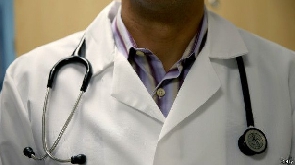Medical negligence may seem difficult to prove owing to the protection health professionals get by legislation.
While some surgeries end up with permanent disability, others result in fatalities.
But how can a lay person prove medical negligence?
Medical negligence is said to occur when a medical professional fails to provide acceptable standard of care, causing injury or harm to the patient.
This may be by causing a new injury or illness due to substandard care or by making an existing injury or medical condition worse.
Over the years here in Ghana, there have been reported cases of some people losing their relatives in the care of a health facility or some disabilities occurring after surgery.
In such cases, fingers are pointed at professionals who attended to the case.
The big question though is that how can victims prove medical negligence?
According to the Deputy Director of the Medical and Dental Council, Dr. Divine Ndonbi Banyubala, clinical negligence is a matter of law.
He indicated the law establishes certain constituent elements that someone who is making a claim that a practitioner has been negligent must prove.
“That person must meet those key elements. You must then be able to demonstrate to the adjudicatory body, the authority or the court that there was a breach of that duty of care.”
On his part, legal practitioner Edwine Kusi-Appiah indicated that one needs enough evidence to prove.
“It is not just enough to say that a doctor has been negligent simply because you went to the hospital and you were not treated nicely and that the doctor had a different diagnosis to what other doctors had.
“The court says that for you to establish that a doctor has been negligent you must proof that what that doctor did no other ordinary reasonable doctor would have done in the course of the care given,” lawyer Kusi-Appiah indicated.
But at what point can one take legal action against a health professional?
Mr Kusi-Appiah mentioned that it’s for one’s lawyer to take them through the processes.
“It’s for you lawyers to take you through the process and when you are injured find ways to do that. For instance, you cannot as a lay person go and sit in the courtroom and say that the diagnosis that was given to me was wrong. Even your lawyers cannot say that. You will need a further witness or an expert witness who would come and proof that what was done to you was not proper by the ways of medicine.”
He, therefore, advised affected persons to gather evidence and be interested in what checks are done on them.
“As a patient, you bear responsibility to yourself, anytime you go to the hospital you are not to go and sit there as if you are an interested party. Everything being done is pertaining to yourself that is why it is very important that you ask the doctors critical questions.”
He further added: “If a doctor has not done any scan on you, not done any proper examination on you and is writing medication for you, you need to satisfy yourself whether it’s important you take that medication, if need be you need to seek second opinion.”
Dr. Ndonbi Banyubala urged all to be empowered and ask relevant questions when they see medical personnel.
“The current Public Health Act, which was passed in 2012 Section 167 of it attaches the patient charter at Schedule 6, and if you read it you have a right to accessibility, non-discrimination [and] all kinds of things are in there to inform consent to ensure that your privacy is not breached under defined circumstances. It entitles you to request for your personal or institutional information all of those things are in the Public Health Act.”
While medical practitioners are urged to do their best to save lives, patients, on the other hand, are encouraged to be interested in the care rendered them at health facilities.
Health News of Friday, 17 July 2020
Source: 3news.com













